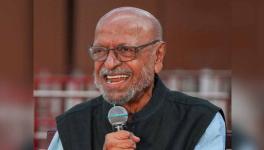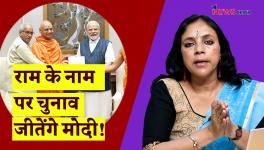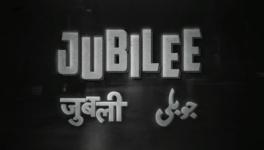Lessons for Bollywood from its Moment of Reckoning

After being shuttered since March end, on October 15 cinema halls in some parts of India opened to the public again—with due safety protocols, only re-releases on view, and barely anyone on the seats. What has played out in the almost seven-month-long break is a tale of mammoth financial destruction for the Indian film industry. According to Mumbai based media consulting firm Ormax Media, the total box office loss this year is going to be to the tune of Rs.7,500 crore (gross), with 40-45% of it for Bollywood.
While some completed Bollywood tent-pole films—Sooryavanshi, 83—have been running losses, waiting for a still indeterminate theatrical release, many big to middling ones have decided to home-in on OTT platforms. The other side of the picture is all about stalled shoots, vacant studios, endless waiting for the production cycle to kick in, job losses and looming uncertainty. In a nutshell—an unprecedented economic crisis at a critical juncture when the creation, production, distribution and consumption of cinema are anyhow in the throes of major change.
But Bollywood’s tryst with disaster in 2020 doesn’t end here. A bigger blow has been dealt in the past few months to the glamorous shiny image of the Hindi film industry. The invaluable pop-culture institution, the public’s favourite entertainment destination, a major contributor to the country’s economy and its global soft power, call it what you will, Bollywood has been badly besmirched.
Since the end of June, the industry’s freewheeling identity, stature and repute have been systematically targeted, especially on television, with unrelenting and salaciously orchestrated prime-time trials and smear campaigns on Sushant Singh Rajput’s death by suicide case. No wonder, the fraternity’s coming together in a rare show of solidarity last week was not a shocker. Rather, it felt, to the optimistic, like a case of better late than never. And, for the sceptical, it was tantamount to too little too late.
What is distinctive is that the display of unity in adversity has not remained confined to a token statement-making exercise, but taken the form of a legal pushback against the massive vilification. Almost all leading production houses, film-makers, stars and industry bodies such as the Producers Guild of India and Screenwriters Association have hit back with a civil defamation suit filed by the law firm DSK Legal in the Delhi High Court, seeking to restrain Republic TV and Times Now from irresponsible and derogatory remarks about the industry.
A press statement has also clarified that the suit does not seek a blanket gag order against media reportage or investigations and it is not just seeking orders against the channels and platforms named in the suit, but also against unnamed defendants referred to as John Doe/Ashok Kumar. This means any orders passed in favour of the plaintiffs would apply to all television channels and content on digital platforms which may be found violating them. “Our clients have also come across some others publishing such content and will be adding certain specific additional defendants to the suit,” said the statement.
The Bollywood warriors this time are not from the usual, tiny, conscious and concerned branch of the industry—the Anurags, Richas, Swaras, Taapsees, Zeeshans et al—but represent the top brass in the mainstream that has otherwise always preferred to remain silent. Forget matters involving society, economy or polity or the state of the nation in general, they have been tight-lipped and stoic on problems concerning the industry itself and, at times, even themselves individually. What is most interesting then is that in this first of its kind joint show of resistance, the media bulls they have taken by the horns are known pro-Establishment figures.
One biggie who has not aligned with the cause is RSVP Movies, which is making the film Tejas with Kangana Ranaut, who has been leading the offensive against Bollywood from within. Others who are not party to the suit include production houses like Maddock, Abundantia, T-Series, Balaji, a film-maker like Sanjay Leela Bhansali and the producer Mahaveer Jain, known in Bollywood as the “selfie enabler” and mediator between Bollywood and the government. Once a small-time producer and someone from within the cadre, his production house is now being talked of as the next big content generator.
Clearly, it would have been quite a tight-rope walk. Industry insiders will tell you that a lot of thought, time and confidentiality went into not just preparing the 1,069-page suit (with 312 pages of annexes) but also in strategising the move; not alienating the powers that be even while cracking the whip on their poster boys and girls in the media. Another section is questioning if this fight for peace and sanity has come with the blessings and permission of the Establishment itself, and if some other intangibles are involved in the quid pro quo.
If one closely follows the chronology, the filing of the case was preceded, more than a week back, by a “humble” tweet from Karan Johar on Gandhi Jayanti seeking the Prime Minister’s guidance, talking about the “Change-Within” initiative in the industry and promising to curate “inspiring” content about “values, valour and culture” to mark the 75th anniversary of India’s Independence in 2021.
Meanwhile, fortuitously for Bollywood, recent turns of events have also gone in its favour, be it the AIIMS team ruling out murder in the SSR case or Republic TV’s credibility questioned over alleged manipulation of TRPs.
So, what does all this portend? Is it that a deep-seated awareness and transformation has finally divined upon Bollywood? Or is it a mere business decision, a temporary counter-offensive to douse the fire threatening to set the future of the industry ablaze, to somehow protect the means of livelihood of the many associated with the industry?
Most of all, how will it pan out in future, considering the SSR saga has had more twists and turns than all Abbas-Mustan flicks can deliver cumulatively? From nepotism and blind items to supposed large-scale drug abuse, accusations of embezzlement and supplying drugs against Rajput’s girlfriend Rhea Chakraborty, her subsequent arrest and release on bail, the summoning of top actors like Deepika Padukone, Shraddha Kapoor and Sara Ali Khan, all the while details of the CBI and ED probes being regularly leaked to the press—the constantly changing narrative, cherry-picked and disseminated by the Establishment trolls and sympathisers within the industry and the media, has held captive the voyeuristic TV viewer’s mind and imagination. An anodyne to beat the economic blues and Coronavirus affliction and drive the collective gaze away from the religious intolerance and communal and caste-based hatred and violence, even as the State goes about its repressive ways and political parties keep using the industry to score brownie points. So, Uttar Pradesh pitches Noida as the film production centre of the future, only to have Maharashtra Chief Minister Uddhav Thackeray saying he would not tolerate attempts to “finish off” or shift the Hindi movie industry from Mumbai.
The latest in the ongoing soap opera is the arrest of Agisilaos Demetriades, brother of Arjun Rampal’s partner Gabriella, in drug abuse investigations. On the other hand, a court in Mumbai has directed the police to file a first information report against actor Kangana Ranaut and her sister Rangoli for allegedly trying to create communal tension through their tweets and interviews. It is difficult to predict what comes next, which salvo will be fired from where. All one can do is attempt to place what has happened so far in perspective.
Bollywood’s equation with the media is under the scanner. Its battles with the media in the past—a misquote here, a piece of gossip there, or a bad review that hurt artistic pride and ego—seem trifling compared to the present day witch-hunt. Yet it is amply clear the film industry itself needs to refrain from undermining the sanctity and independence of the media, which it has been doing blatantly. It has been an equal partner in dissemination of paid news, building of entities like Medianet, creating cliques and coteries and unleashing a social media phenomenon like the Dubai-based small-time actor Kamal R. Khan to seek publicity and promote themselves and their films. All of them have become Frankensteins, threatening to devour the hand that fed them. The time then isn’t just ripe for a fight with the media but also for Bollywood to calibrate anew its own equation with the press.
There are other eye-opening lessons. That happy selfies and abject supplication to the powers-that-be are not necessarily security blankets for life. That allowing itself to get appropriated by the Establishment for short-term personal profit is not the wisest of ideas. That becoming a lackey of the powerful is not an insurance policy; it comes with conditions attached, and a “best by” date. That, in the use and throw culture of power politics, the downfall can be as meteoric as the rise. Even a blue-eyed boy like Akshay Kumar, despite close proximity to the PM, finds his forthcoming film Laxmmi Bomb facing the ire of the right-wing troll army—a case of pets turning into prowling predators overnight.
This moment of reckoning is also not just about a few big stars and production houses but the backroom talent on whose ideas and ingenuity the industry truly runs. For a while now Bollywood has seen an influx of young talent from all over the country. Youngsters who are educated, intelligent and aware; who are trying to bring fresh narratives and progressive perspectives into our cinema. The rancid and regressive public discourse getting created around the film industry now threatens to turn the clock back to days when cinema was not considered a “respectable” and “honourable” enough calling.
Accompanying this is the persistent talk about “cleansing” Bollywood, which makes the systematic attack appear like yet another ongoing attempt to co-opt and destroy cultural institutions across India. Bollywood, despite the issues one may have with it, has still retained its liberal, secular credentials and creative independence, more than many others, in an increasingly bigoted landscape in the country. Yes, changes have begun to reflect in newer films, and will get even more pronounced in days ahead.
With films like Uri: The Surgical Strike and PM Narendra Modi, the industry volitionally became a propaganda vehicle for the ruling party in the last elections. Righteous stories have been taking off from government schemes (Toilet: Ek Prem Katha), there is the rise of the aggressive, jingoistic heroes portrayed by Akshay Kumar, Ajay Devgn, John Abraham, and Vicky Kaushal, and a simultaneous othering and demonisation of Muslims in film after film. Johar’s recent placatory tweet is itself an indicator of the sanitised narratives in demand—and certainly not by the audience, mind you.
In this fight for survival and call to arms, what also needs security and protection is the sanctity of Bollywood’s stories and how it chooses to tell them.
The author is an independent writer and film critic. She wrote Reel India: Cinema off the Beaten Track, published by Hachette in 2019. The views are personal
Get the latest reports & analysis with people's perspective on Protests, movements & deep analytical videos, discussions of the current affairs in your Telegram app. Subscribe to NewsClick's Telegram channel & get Real-Time updates on stories, as they get published on our website.
























